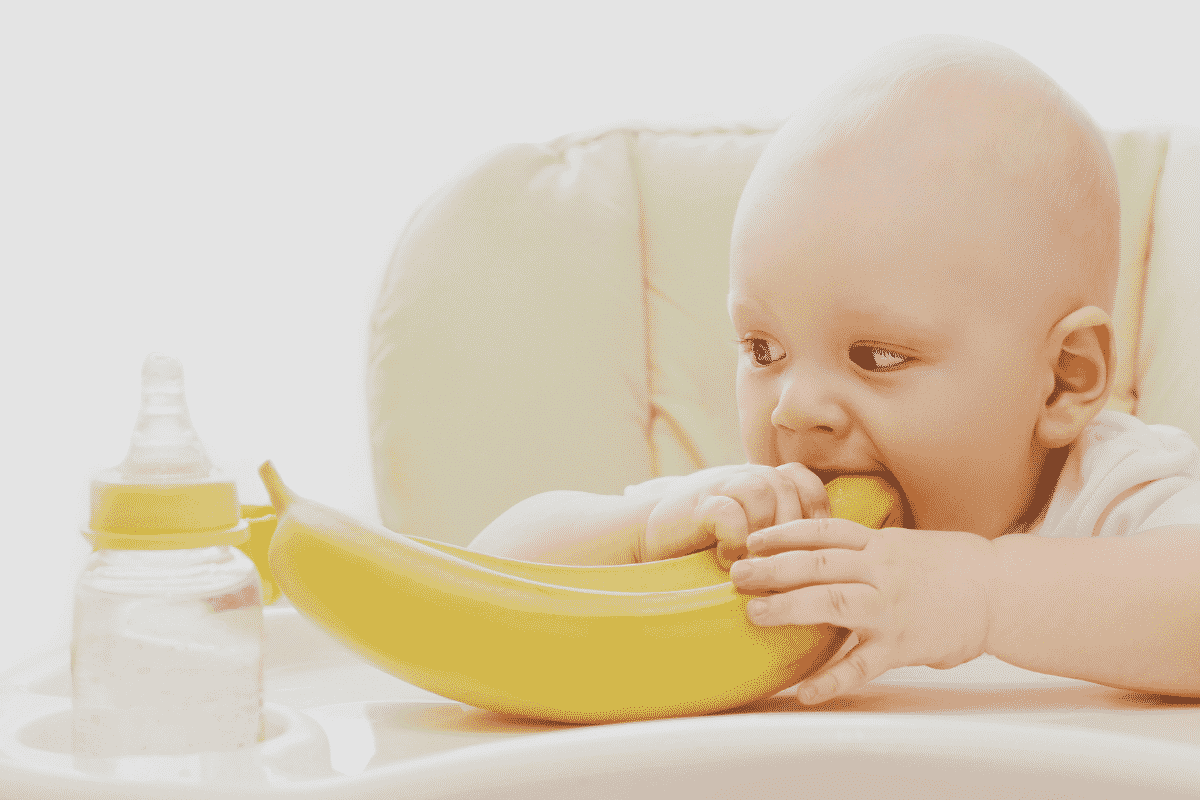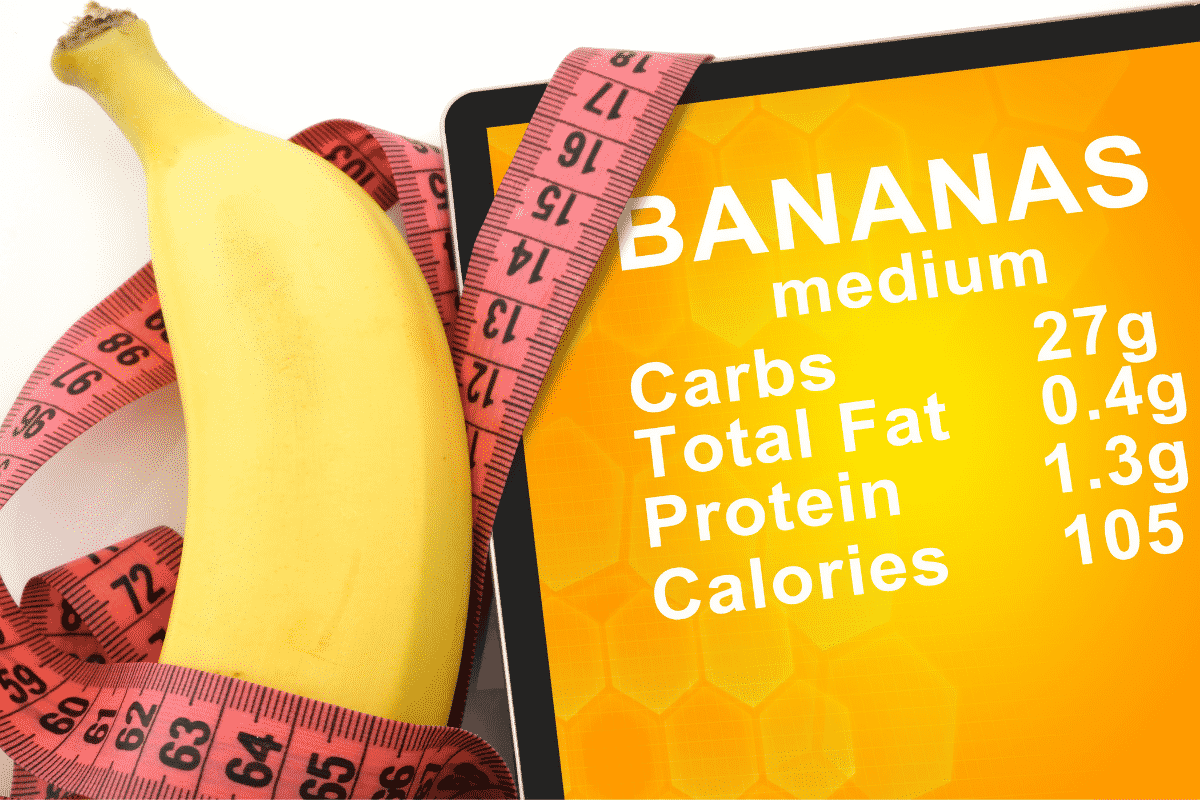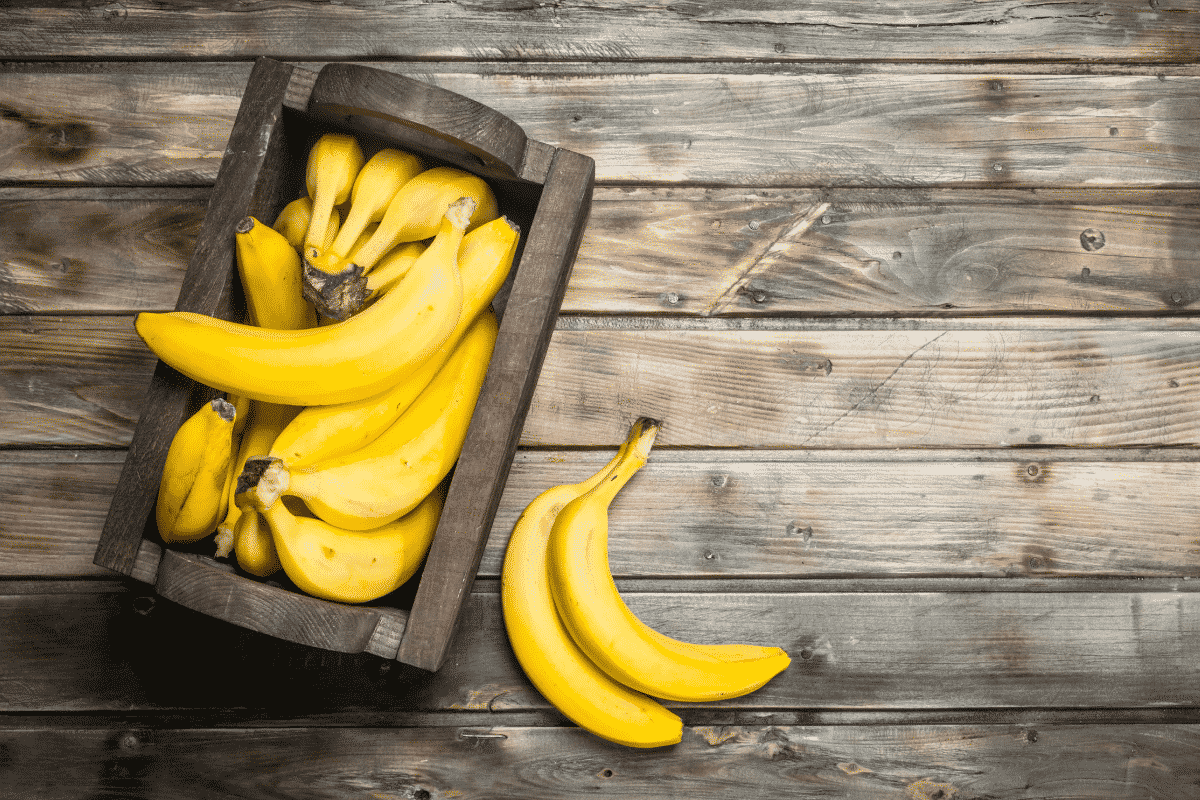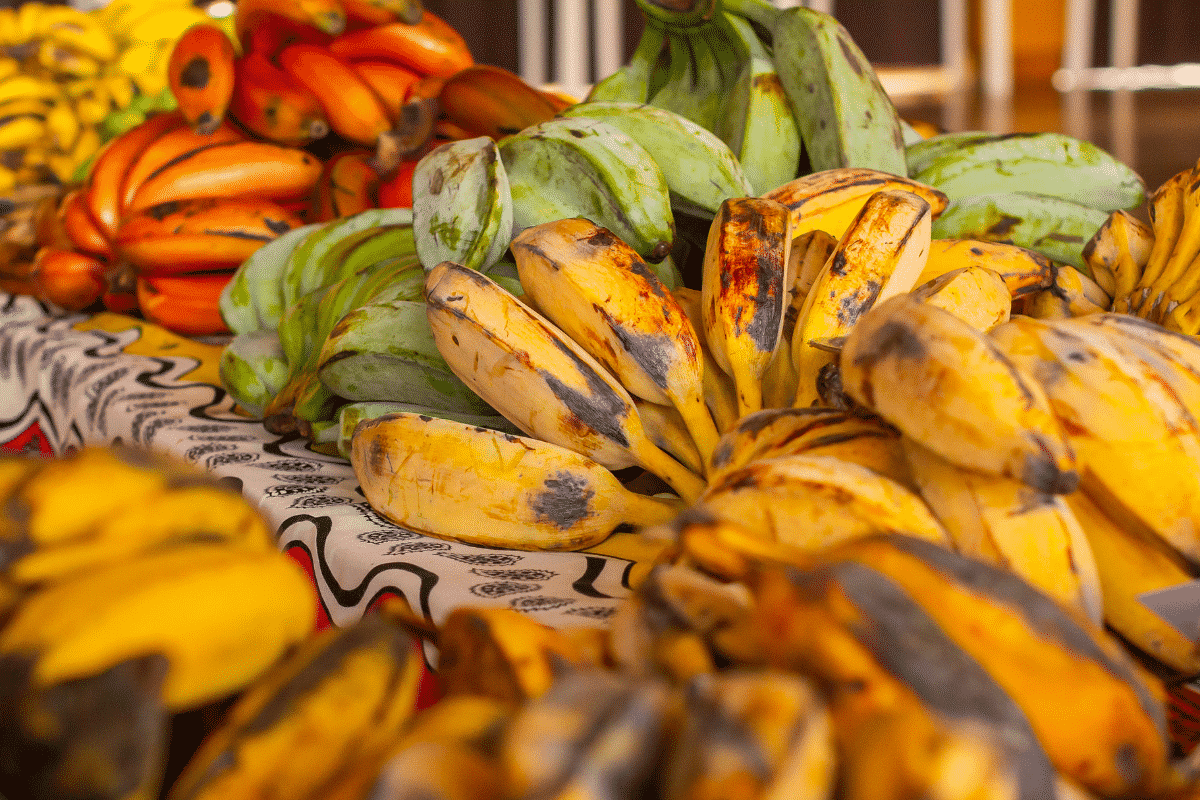Feeding Baby Bananas for the First Time
Once your baby is old enough to start eating solid foods mealtimes become much more fun (and messier too!). When I was a new parent one of my biggest concerns was whether or not my baby was eating too much of a certain food or just generally eating too much in one sitting. Since one of my son's favorite foods is bananas I decided to look into how much is too much for him to eat.
Determining how much banana is too much for your baby to eat depends on their age and dietary habits. For instance, a normal 4-month-old could have about a third of a banana per day while a one-year-old could have a whole banana. Babies can have more than this amount and eat them daily as long as there are no issues with constipation.
Everyone knows that babies can be picky eaters and sometimes it seems like they get stuck on one kind of food and refuse to eat anything else. If your baby loves bananas then you shouldn't worry too much about giving them to her! Let's dive into how much a baby can have by age, the health benefits of bananas, the potential issues, and even which varieties they can eat!
How much banana is too much?
Bananas are considered to be a pretty healthy food for babies to eat. They are full of vitamins, nutrients, fiber, and other goodies that help your little baby's body function properly. They are also a GREAT first solid food to try with your baby because they are soft and easy to mash up and spoon feed.
Since they are also sweet and delicious, most babies won't pitch a fit when trying them out for the first time.
Because bananas work so well as early solid foods, in fact, it's easy for parents to feel like they might be giving their babies too many bananas to eat in one sitting or throughout the day. Add to this the fact that bananas do include a fair amount of sugar in their dietary profile and it's easy to wonder just much banana is too much for your little one.
The good news is that unless your baby is overeating, in general, you probably aren't feeding them too much banana. Just be sure that she is also getting the right amount of breastmilk, protein, and other fruits and vegetables in her diet as well.
Of course, your baby's needs will change over time as she grows up and this means that the amount of banana she can have will change as well.
Let's jump into those different age groups.

How much banana can a baby eat by age
According to the Mayo Clinic, the only food your baby really needs is breastmilk until she is around 6 months old but you can start introducing solid foods at 4 months. At this point though you are really just letting your baby have a taste of different foods to expose them to new tastes and textures.
To determine how much you should be offering your baby I looked at the feeding guides for infants, toddlers, and young children at Florida's Department of Health to see how many servings of fruit they recommend by age group. Here is what I found:
Banana servings by age
| Baby Age | Servings of fruit (banana) per day |
|---|---|
| 4 months | 4 to 6 tablespoons per day (1/4 to 1/3 of a large banana) |
| 9 months | 4 to 8 tablespoons per day (1/4 to 1/2 of a large banana) |
| 12 months | 3/4 to 1.5 cups per day (3/4 to 1.5 large bananas) |
| 16 months | 3/4 to 1.5 cups per day (3/4 to 1.5 large bananas) |
| 24 months | 1 to 1.5 cups per day (1 to 1.5 large bananas) |
How many servings of bananas recommended for a baby to have at 4, 9, 12, 16, and 24 months.
As you can see from the table above your baby can have a fair amount of banana before you should be concerned. Keep in mind that these are general recommendations and as long as your baby is getting adequate overall nutrition and not overeating it's probably okay to have a little more of those amounts.
In my personal experience, my son went through a big banana-eating phase around the age of 12 months where he would eat a whole banana and ask for more. He would eat two bananas if we let him! After a while, he got bored with them and now we just give him one occasionally to mix things up.
Every baby grows a little differently than the next!
The nutritional benefit of bananas
Like I mentioned before bananas are actually a pretty healthy food for babies to eat regularly because they are full of vitamins and nutrients. Here's a complete breakdown of what's in your average medium banana:
- Calories: 105
- Total fat:.4 grams
- Total Carbohydrates:27 grams (3.1 grams fiber, 14 grams sugar)
- Protein:1.3 grams
- Sodium: 1.2 mg
- Cholesterol: 0 mg
- Potassium: 422 mg
- Vitamin A: 1.5% of daily value (DV)
- Vitamin C:17% of DV
- Vitamin B6: 20% of DV
- Iron:1.7% of DV
- Magnesium:6% of DV
Source: Nutritionix
As you can see, bananas are a low-fat food that makes a good supplement for breastmilk or formula. In general, they have also been associated with improved cardiovascular health, digestive health, and even weight control.

Do bananas cause constipation in babies?
Many parents have probably heard that bananas can cause constipation and might be worried that giving their baby too many bananas will upset their tummy.
In reality, there aren't really any conclusive studies showing that bananas do or don't cause constipation. The popular opinion is that green bananas probably help prevent constipation while ripened bananas could contribute to it over time. In both cases, ensuring that a person gets proper hydration was a way more significant factor in preventing constipation.
With all of that being said, whether or not bananas cause constipation is going to come down to your individual baby and her digestive system.
After reading through many forums that included personal experiences from parents it seems like a small portion of a banana can clog up one baby while another baby could eat three bananas and not have any trouble.
Like most things, your mileage may vary and you should keep an eye on your baby to see what happens.
Is it okay to give banana to a baby daily?
Assuming there isn't an issue with constipation like I mentioned above then there is no reason you shouldn't let your baby have banana every day.
The only thing I will say is that, in general, you want to try to expose your baby to as many different foods as possible while they are getting used to solid food. Most experts tend to agree that this exposure will help them develop their overall palette and maximizes the chances that they will have a diet with maximum nutritional benefits.
If your baby loves bananas then you can still add other foods into their diet easily with baby food pouches that mix healthy fruits, vegetables, and grains together. One of my personal favorites is the brown rice, raspberry, and banana pouches from Earth's best that you can find here.
And yes, I know from personal experience that they are delicious – I always taste the baby food!

Can babies have too much potassium?
Another potential issue that many parents question is whether or not babies can have too much potassium. Since bananas are a great source of potassium, they might wonder if eating them every day could cause a problem.
According to the CDC, the adequate intake of potassium for a baby aged 1 to 3 years is about 3,000 mg per day. Note that this is considered a normal amount and isn't an upper limit for how much you should have in a day. So basically there is nothing to worry about if you are getting about 3,000 mg per day as a one-year-old.
If you check the nutritional information above, you'll see that there is about 422 mg of potassium per medium banana. If we multiply that out, your one-year-old would have to eat about 7 bananas in one day just to hit the average normal amount!
Of course, I should also point out that despite their reputation as a big source of potassium, bananas actually pale in comparison to other common baby foods such as sweet potatoes (542 mg for medium), spinach (839 mg per cup), natural yogurt (579 mg per cup), and avocados (487 mg per half).
So unless your baby is somehow pounding down her body weight in bananas I wouldn't worry about potassium!
Which banana is good for babies?
There are many different kinds of bananas available on the store shelves and you might wonder if there is any particular kind that is better or worse for babies to eat.
Of course, you should try to pick up organic bananas if at all possible because those will have avoided most of the dangerous pesticides and other chemicals commonly used in the agricultural world. Although bananas aren't one of the riskiest fruits when it comes to pesticides I personally prefer to err on the side of caution. Also, they just taste better to me!
Fortunately, every type of banana that you find on the store shelves will be perfectly good for your baby to eat. That includes the most popular, Cavendish, as well as apple, lady's finger, red, and other varieties. All of these options will have similar nutrient profiles but different types of bananas might lend themselves better to be eaten from the hand, baked, fried, or prepared in other ways.
Overall, bananas are a great fruit that most babies enjoy.
Don't worry too much about giving them too many to eat!

Source: https://naturalbabylife.com/how-much-banana-is-too-much-for-baby/
0 Response to "Feeding Baby Bananas for the First Time"
Enviar um comentário